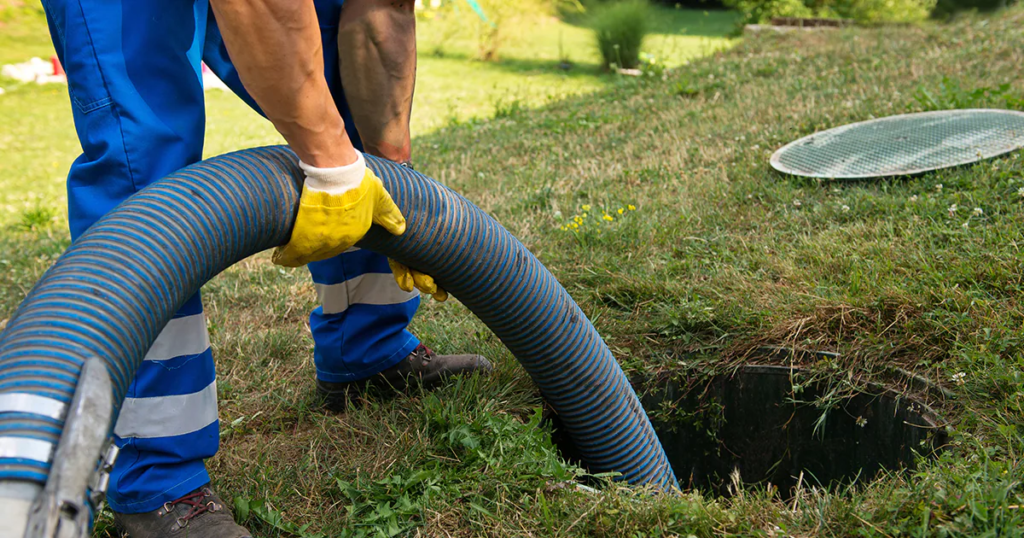When it comes to maintaining your septic system, finding the exact location of your tank is crucial. Septic tank locating ensures that you know where your tank is situated, making regular maintenance and septic tank cleaning much easier and more efficient. With this knowledge, homeowners can avoid accidental damage during landscaping or renovations, potentially leading to costly repairs.
Why Is Septic Tank Locating Important?
Professional help is often needed to locate septic tanks buried deep underground. Knowing your septic tank’s location helps ensure timely maintenance. Routine inspections and septic tank cleaning are essential for avoiding system clogs or overflows. By accurately identifying your tank’s position, you avoid unnecessary excavation, saving both time and money.
In addition, when emergencies arise, such as a full tank or drainage issues, quick access is key. Having your septic tank mapped out allows technicians to get to work right away, resolving problems before they escalate. Regular septic tank locating is not only practical but also vital for the long-term health of your system.
Signs Your Septic Tank Needs Maintenance
If you haven’t thought much about your septic system, here are some common signs that your tank may need cleaning or inspection:
- Slow drains: If water takes too long to drain from sinks, tubs, or toilets, your tank may be full.
- Unpleasant odors: Foul smells coming from your drains or yard can indicate a septic issue.
- Standing water: Pools of water around your drain field or tank area signal that it might be time for a septic cleaning.
- Unusually green grass: This may seem like a good thing, but if the grass over your septic tank is greener than the rest of your yard, it could mean the system is leaking.
How Professionals Locate Septic Tanks
Locating a septic tank is a precise process that usually requires specialized equipment. Professionals often use methods like:
- Probing rods: These are used to manually probe the ground to find the tank’s location.
- Electronic detectors: These devices send signals through the ground to identify metal or other tank components.
- Septic system maps: If the property has a map showing the septic system layout, this can simplify the process.
Each of these methods ensures minimal disruption to your yard, as experts pinpoint the tank with accuracy and precision.
Regular Maintenance Keeps Your Septic System Healthy
Once your septic tank is located, regular maintenance becomes much more straightforward. The most crucial part of this upkeep is septic tank cleaning. You should clean septic tanks every 3 to 5 years, depending on usage. Skipping this vital task can lead to serious issues like backups, leaks, and system failures.
Cleaning of septic tanks involves removing the sludge and scum that accumulate over time. By scheduling regular cleanings, you prevent clogs that could cause your system to overflow. If you want your septic system to last for decades, regular cleaning combined with locating a septic tank is a must.
What Happens During a Septic Tank Cleaning?
A septic cleaning service involves pumping out the contents of your tank. The process typically follows these steps:
- Inspection: Before cleaning, the technician inspects your tank for cracks or other signs of damage.
- Pumping: The sludge, scum, and liquid waste are pumped out using specialized equipment.
- Rinse and repeat: After the initial pumping, the technician may flush the system with water to remove any leftover residue.
- Final check: The system is then inspected again to ensure everything is in good condition.
Common Septic Tank Problems You Can Avoid
By locating septic tank services and scheduling regular cleanings, you can avoid many common septic system problems. Some issues you can prevent include:
- Clogs and backups: Waste buildup can block pipes and cause sewage to back up into your home.
- Drain field failure: If your septic tank isn’t maintained, the drain field may become clogged, leading to system failure.
- Costly repairs: Neglecting your system can result in the need for expensive repairs, such as replacing the tank or drain field.
When to Call a Professional
Even if you’re diligent about septic tank cleaning, there are times when professional help is essential. If you experience any of the following issues, call a septic service expert right away:
- Sewage backups into your home
- Gurgling sounds from drains
- Wet patches or standing water in your yard
- Persistent foul odors near your drain field
Ignoring these signs could lead to bigger problems, such as property damage or even health hazards. A professional can assess the situation and recommend the appropriate course of action, whether it’s locating a septic tank, cleaning, or a full system inspection.
How to Schedule Your Septic Tank Locating and Cleaning Service
If it’s been a while since you last cleaned a septic tank or you don’t know where your septic tank is located, it’s time to call in the experts. Whether you’re preparing for a routine cleaning or addressing a potential issue, a professional septic tank locating service will give you peace of mind and save you money in the long run.
By taking proactive steps now, you ensure that your septic system stays healthy for years to come. Don’t wait until there’s an emergency—schedule your service today.
Conclusion
In conclusion, locating a septic tank is essential for maintaining a well-functioning septic system. When combined with regular septic tank cleaning, it helps homeowners avoid costly repairs and system failures. Knowing exactly where your tank is located allows for quick access during emergencies and routine maintenance.
Ready to schedule your septic tank locating? Contact Sep-Tech today for professional, reliable service that keeps your system running smoothly.



